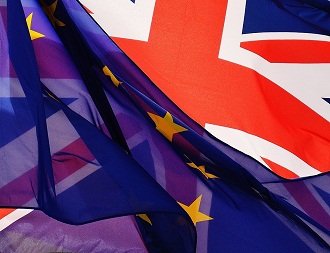UK’s Top Judge Urges Legal Clarity on Brexit
UK’s Top Judge Urges Legal Clarity on Brexit

Britain’s most senior judge has said the government must provide more clarity about how UK law will be developed after Brexit.
Lord Neuberger, the outgoing president of the Supreme Court, said it would be “unfair” to blame judges for making the law “when Parliament has failed to do so.”
Ministers have said that the jurisdiction of the European Court of Justice (ECJ) will come to an end after the UK leaves the European Union – but they have also said that UK courts should continue to interpret the court’s case law around legislation derived from the European Union.
When the UK leaves the EU, the ECJ will continue to develop law areas including employment law, consumer rights and discrimination.
Brexit supporters want the authority of the ECJ annulled as quickly as possible after the UK leaves the EU – but any UK company or organisation doing business in the EU will still be subject to the jurisdiction of the ECJ.
Historic ECJ judgements will have precedent status
The Government’s Repeal Bill, which will be voted on in September, says no UK court will need to have regard to decisions of the ECJ post-Brexit, but may do so if it considers it appropriate. The government has also said the bill – which is officially known as the European Union (Withdrawal) Bill – will ensure that historic judgements of the ECJ will be given the same binding or precedent status in British courts as decisions of the UK’s own Supreme Court.
Lord Neuberger, who will step down as Supreme Court president next month, told the BBC that judges need more guidance on how they should do this.
“If [the government] doesn’t express clearly what the judges should do about decisions of the ECJ after Brexit, or indeed any other topic after Brexit, then the judges will simply have to do their best.”
“But to blame the judges for making the law when parliament has failed to do so would be unfair,” he added.
He said all judges “would hope and expect Parliament to spell out how the judges would approach that sort of issue after Brexit, and to spell it out in a statute.”
A Government spokesman said: “We have been clear that as we leave the EU, the direct jurisdiction of the European Court of Justice in the UK must come to an end.”
“However, we want to provide maximum certainty, so the Repeal Bill will ensure that for future cases, UK courts continue to interpret EU-derived law using the Court of Justice of the European Union’s case law, as it exists on the day we leave the EU.”
Lord Neuberger said he was particularly concerned about post-Brexit rulings of the ECJ, adding: “If the UK parliament says we should take into account decisions of the ECJ then we will do so . . . If it says we shouldn’t then we won’t. Basically we will do what the statute says.”
Baroness Hale to be Britain’s first female top judge
Lord Neuberger will be replaced as president of the Supreme Court by Baroness Hale of Richmond: she will be the court’s first female president.
The appointment comes amidst criticism of the judiciary for the slow pace of progress on gender and ethnic diversity. In the past three years the percentage of female judges has risen from 18 to 24 in the Court of Appeal, 18 to 22 in the High Court and 24 to 28 in the judiciary, a report showed. The percentage of black and ethnic minority judges has risen from 6 to 7.
Contact our legal experts today
For advice on steering your organisation through Brexit, strategic planning and fulfilling your business objectives, please contact our experienced solicitors today on 03456 381381 or email enquiries@ibblaw.co.uk.
You may also be interested in
The Potential Impact of Brexit on Mergers and Acquisitions
